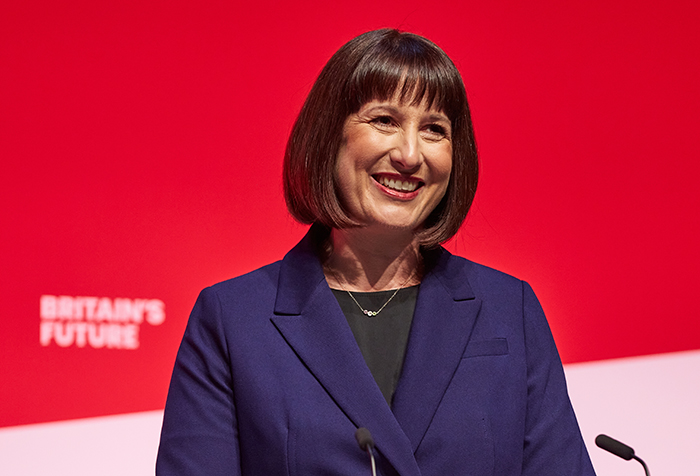Israeli forces bombarded Beirut and southern Lebanon overnight as the region braced for Israel’s response to a missile attack by Iran that intensified fears of a wider war in the Middle East.
Prime Minister Benjamin Netanyahu vowed retaliation against Tehran after dozens of missiles were fired into Israel. “Iran made a big mistake — and it will pay for it,” Netanyahu said on Tuesday. “Whoever attacks us, we will attack them.”
The surprise missile attack by Iran has brought the region even closer to an all-out conflict as Israel continues its offensive against Iran’s proxies. In recent weeks, Israel has hit a Houthi-controlled port in Yemen, carried out mass air strikes against Hizbollah and has been blamed for explosions in Syria.
The US pledged to join Israel in exacting “severe consequences” from Iran for its missile barrage, said White House national security adviser Jake Sullivan.
Only a handful of the Iranian missiles slipped past Israel’s sophisticated air defences, including one that appeared to have struck near the headquarters of the Mossad, Israel’s foreign intelligence service.
One death was reported in the Palestinian city of Jericho, where a man was struck by debris from an intercepted missile.
A person briefed on the situation said Iran had targeted military and intelligence infrastructure near Tel Aviv and other facilities elsewhere in the country.
Iran said the strikes were retaliation for Israel’s targeted killings across the region, including that of Hizbollah chief Hassan Nasrallah last week, and threatened to respond if Israel retaliated.
“Our action is concluded unless the Israeli regime decides to invite further retaliation. In that scenario, our response will be stronger and more powerful,” Iranian foreign minister Abbas Araqchi said in a post on X on Wednesday.
Araqchi said he had spoken to his UK, German, and French counterparts, warning that while Iran did not seek war, it was “not afraid of it.” He also urged “any third party” to refrain from intervening, a clear reference to the US.
German chancellor Olaf Scholz condemned Iran’s missile attack on Israel in a statement on Wednesday, saying Iran risked “setting the whole region on fire”. “We must prevent that at all costs,” he said. “Hezbollah and Iran must immediately stop their attacks on Israel.”
Israeli warplanes carried out heavy bombardments in Beirut and southern Lebanon on Tuesday night.
The air strikes came after Israel issued new evacuation orders for the area, which is largely empty after days of intensive strikes that have flattened residential buildings in densely populated neighbourhoods.
The depth of Israel’s ground incursion into Lebanon remained unclear more than a day after the Israel Defense Forces said they were conducting targeted raids just across its northern border.
The IDF said it was sending additional forces to join what it says are “limited, localized, targeted raids” into Lebanese territory, including troops from the Golani infantry brigade and a separate armoured brigade.
Israeli troops have been conducting covert raids into the area for nearly a year since hostilities began against Hizbollah in the wake of Hamas’s October 7 attack on southern Israel.
In the first sign of contact between Israeli forces and Hizbollah, the Iran-backed militant group said its fighters had repelled a group of Israeli troops “trying to penetrate” the southern community of Odeisseh, close to the border. The IDF did not comment on the claim.
Israeli warplanes struck targets in southern Beirut, saying they had killed the head of Hizbollah’s operations for the Syrian city of Aleppo, where the Lebanese group had come to the aid of President Bashar al-Assad in the Syrian civil war.
That specific division of Hizbollah was behind drone and anti-tank missile attacks on Israeli territory, including on a school in Eilat in 2023, the IDF said.
It said separately that it had killed Muhammad Jaafar Qasir, a commander in charge of weapons transfers from Iran and its affiliates.
Nearly 2,000 people have been killed and thousands more wounded in Lebanon in almost a year of fighting between Israel and Hizbollah, Lebanese authorities said.
Most of those have been in the past two weeks. There were 55 dead and 156 wounded in Israeli attacks across Lebanon on Tuesday.
In oil markets, the international benchmark Brent crude edged up 1.4 per cent to $74.55 a barrel on Wednesday, while the US benchmark West Texas Intermediate climbed 1.5 per cent to $70.9 a barrel.
Prices had risen as much as 5 per cent after the Iranian attack on Tuesday night.
Additional reporting by William Sandlund in Hong Kong





































































































































You must be logged in to post a comment Login